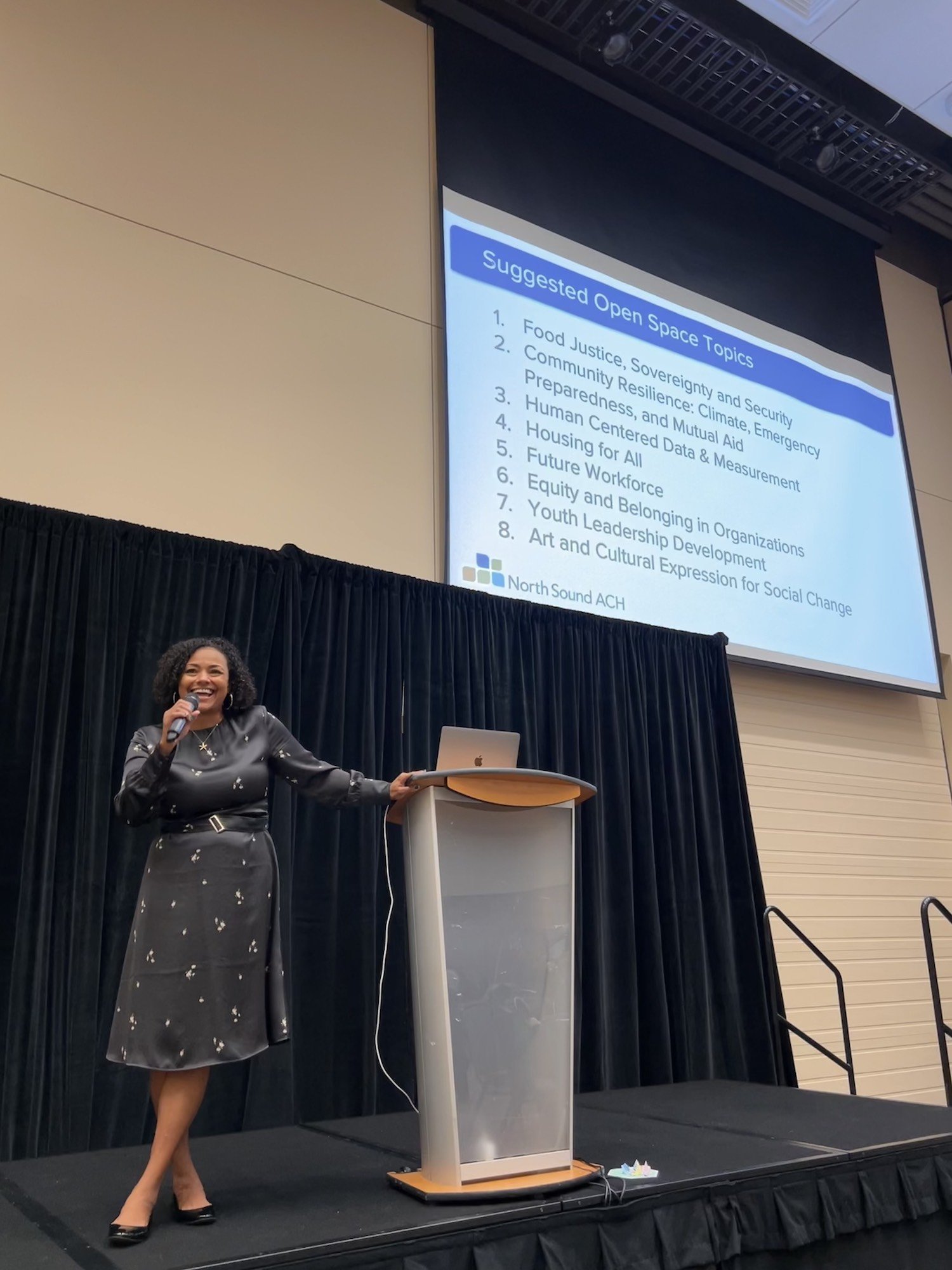
Services
We believe organizational development and advancing social equity and belonging means creating new systems and structures that redefine how institutions relate to the people they serve and work with. We approach our core service areas using a variety of methods and tools to reimagine how people-systems come together and cooperate in harmony.
Our consulting teams deliver:
Communities of Practice
Strategic Plans
Equity plans
Coaching and guidance
Strategic implementation support
Culture repair
Diversity, Justice, Access, Equity, Inclusion and Belonging (DJAEIB) training/planning
Organizational restructure and sustainability planning

Communities of Practice (CoP)
Complex problems need complex solutions, and it’s the fresh, sophisticated approach of Targeted Universalism (TU) that can break through gridlock and create new avenues communities to thrive. TU is a systemic approach that supports the needs of the particular, while also attending to universal thriving and reminding us that we are all part of the same social fabric. This CoP is an opportunity for participants to grow their TU "muscle", build relationships with others, and grapple with the challenges and opportunities of co-creation and implementation of TU.
The purpose of this CoP is to:
Foster a deep understanding of TU methodology, strategies, and implementation for distinct workflows (e.g., a funder making grants, a nonprofit addressing a community issue, a company achieving a corporate priority)
Share challenges and opportunities, including what works and discrete practices
Collaborate on creative problem solving, learning, and innovating, using TU within the cohort and with expert TU practitioners
Build Relationships with colleagues and experts in service to co-creating and learning together the concepts of belonging and TU
How can Targeted Universalism help my organization?
There is a groundswell of multi-sector interest in the practice of TU and belonging, from hospitals and schools to government programs and foundations, from corporations to community and advocacy groups. The appeal and promise of TU addresses some of the most pressing systemic challenges of our time -- including increasing division, breaking, and competition between groups -- by offering a process to care for our different needs and situatedness.
TU differs from typical approaches to equity.
Equity is often practiced as focusing on disparities, which can become a binary that looks at the most- and least-favored groups, ignoring other groups, and setting the goal as what the most favored group has rather than a universal, affirmative outcome. Disparity-focused or "closing the gap" strategies can lead to pitting groups against each other and creating competition for scarce resources. It can also fall into the trap of racial essentialism.
TU, on the other hand, organizes around an outcomes-based, universal goal while developing strategies that look at structures, institutions, culture, and the situatedness of groups and individuals. TU focuses on the construction and situatedness of groups through data and disaggregated information and takes racially constructed outcomes and disparities seriously by looking at how they are constructed. Organizing around a universal goal can create common cause and social cohesion, while the targeted strategies recognize and address differences in situatedness, history, and opportunity. Importantly, TU thus accounts for issues affecting marginalized groups, including but not limited to race, gender, religion, and disability. TU is also valuable when there is broad consensus that there's a problem but disagreement on solutions. At its best, TU can expand care, power, and promote real reform -- which advances us towards a world of belonging. Often called equity 2.0, TU is particularly effective around policy, programs, process, and design. As an operations and communications strategy, it is a sophisticated and practical process and philosophy that can advance us towards bridging and belonging.
Objectives
The TU CoP is designed to advance justice, equity, and belonging through realization of the following outcomes:
Strengthen the application of TU among interested institutions focused on both internal and external functions
Create broad understanding of the challenges and successes among institutions and places applying TU
Create relationship among those working with TU to enable knowledge-spillover effects among community members
Increase exposure to experts and experienced practitioners of TU
Understand TU in the context of and in service to belonging and "bridging" as both a mechanism and outcome of TU that can drive transformation.
Feel free to email us with questions.

Cultures and Communities of Belonging
We delve into understanding how people systems work internally with the individuals who serve the operations and their constituents. We solve problems that stymie integration between driving teams and their institutions towards serving their mission and vision.
Our Services for Cultures and Communities of Belonging:
Culture repair strategies
Coaching and guidance
Diversity, Equity, Inclusion and Belonging training
Strategic plans
Strategic Planning and Implementation and Growth Strategies
To support our clients with their growth strategies, sustainability goals, as well as various restructure opportunities, we employ consensus-based decision-making group processes to ensure that key stakeholders are engaged and are brought into processes and decisions at the highest levels. Using processes that prioritize common ground and align stakeholders around decisions allows organizations to move forward with strong stakeholder support that discourages internal politics, silos, and disengagement, while promoting transparency, shared direction, and unified action.
Our Services for Strategic Planning and Implementation and Growth Strategies include:
Conducting operational, governance and structural analysis
Designing research-based program design and implementation
Developing strategic plans
Facilitating strategic mergers and collaborative restructures
Providing post-restructure integration
Board Retreats
Executive Coaching
Hear from our clients




